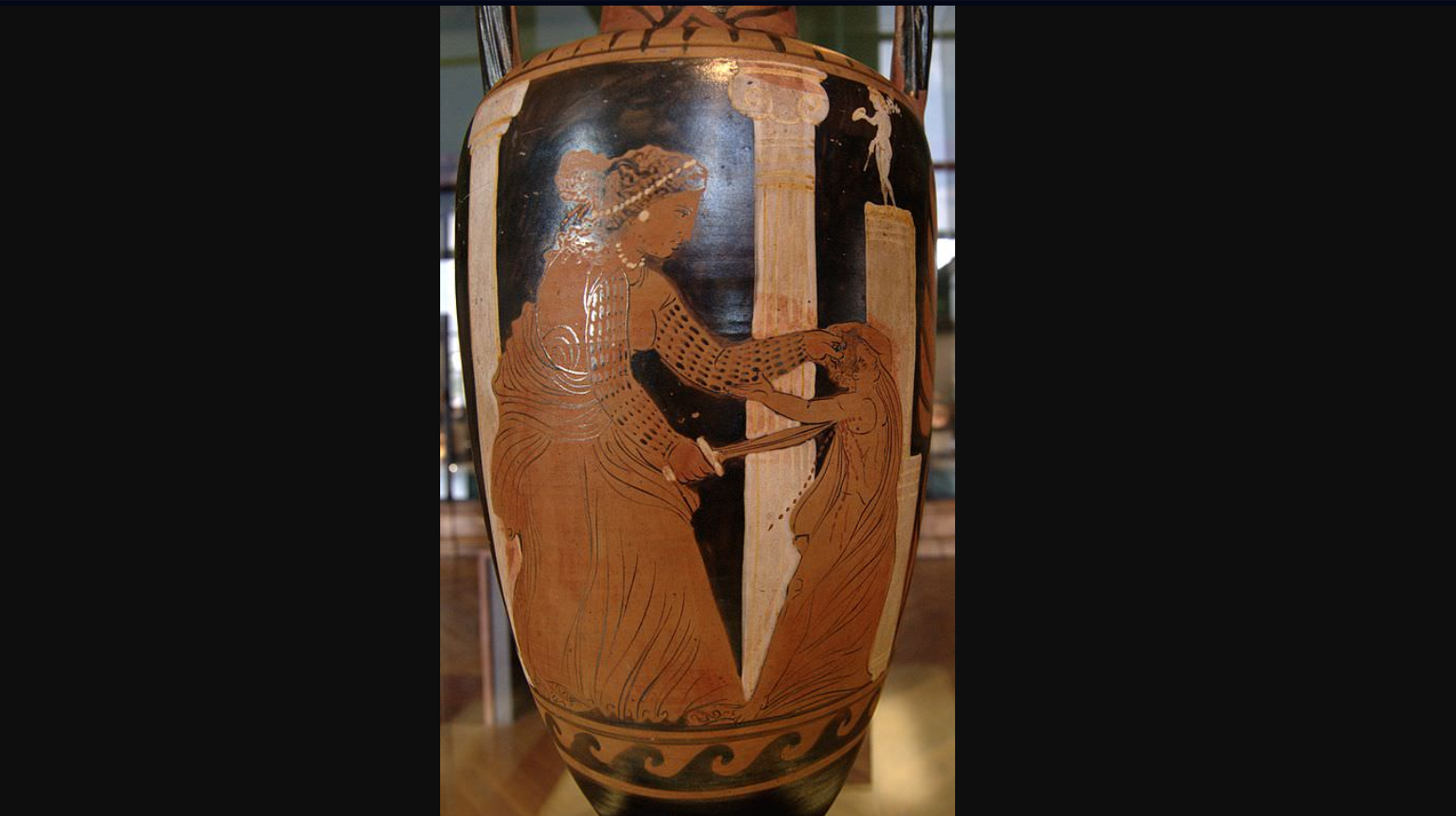It’s no secret that the Greeks can cook. At the first hint of European summer, holiday-makers flock to the country’s most popular islands for sun and saganaki (Greek fried cheese). But head north to the island of Limnos and you can sample some of Greece’s finest produce, minus the crowds.
Author: GRACE FAULKNER Lonely Planet Writer
It's no secret Greece is a food-lover's dream © Foxys Forest Manufacture / Shutterstock
Welcome to Limnos
We turn off Kyda, the main pedestrian street in Myrina, at the sight of two towering plane trees and an empty table. It’s almost three o’clock and most of the shops in town have shut for the afternoon. While Greece doesn’t strictly observe siesta, sleepy islands like Limnos prefer to close over lunchtime and stay open well into the balmy summer evenings. This leaves people jostling for a late lunch spot at tavernas like O Platanos.
We bag seats in the afternoon sun, around us, animated conversations mingle with the sound of swaying trees. Old friends stroll together, arms full of fresh veg. Diners on the adjacent table play musical plates, shuffling dishes until everyone has a hefty portion.
Moments later, the owner appears with a menu, but my partner’s father, our connection to the island, waves it away and orders from memory. He explains that they've prepared the same food as long as he can remember.
Order dishes to share at tavernas like O Platanos © Brester Irina / Shutterstock
Within minutes our table is overflowing. Baked yemista (stuffed tomatoes and capsicum) is set down beside chargrilled octopus and peasant salad topped with a slab of oregano-laden feta. Of course, there’s the compulsory tray of tzatziki and fresh bread too, but the crowning glory is the flomaria pasta – a Limnos specialty with tomato sauce and slow-roasted beef.
My taste buds tingle with each bite. Limnian olives, rich and salty, tomatoes so sweet you could eat them like apples. The food at O Platanos reflects Limnos’ culinary ethos: simply glorious. Through a combination of quality ingredients and age-old recipes, this northern island cements itself as a gastronomic utopia.
What to eat in Limnos
Limnos’ diverse terrain and mineral-rich soil provide ideal conditions for crops like wheat, but in recent years the island has become known for its cheese, olives and spirits – the Greek holy trinity.
When in Greece, octopus is a must © LauraVl / Shutterstock
Seafood typically dominates Aegean menus and Limnos is no exception. Dine at any of the waterfront tavernas around the island and prepare for feasts of psári (fish), htapothi sti skhara (grilled octopus) and kalamarakia tiganita (fried calamari) caught fresh every day. For a meatier main, order the rabbit stifado (stew) at Mantella Taverna or head to Grammóphōno for a mouth-watering pork souvlaki stuffed with paprika chips, onion, tomato and tzatziki.
Cheese-lovers will be delighted with the selection unique to the island. Melichloro, a hard cheese made from sheep and goat milk, and kalathaki, a tangy, white brine cheese are two of the best, but much like the rest of Greece, you’re never far from a good feta.
While variations of these dishes can be sampled across the country, Limnos’ dedication to fresh and free-range produce and its sublime growing conditions elevate traditional recipes to spectacular heights.
Make sure to leave room for dessert, like this traditional kourabiedes © mpessaris / Shutterstock
Something sweeter
Along with the usual favourites – from kourabiedes (butter cookies covered in icing sugar) to bougatsa (semolina custard wrapped in crispy phyllo) – Limnos has a few sweets of its own. Sesame halva is a staple, along with sticky samsades. Reminiscent of baklava, samsades are made with layers of phyllo and spiced nuts, baked and doused in either sugar syrup, honey or petimezi (grape syrup). Visit Axni & Kanella in central Myrina for some of the island’s best pastries.
Honey is another Limnian specialty, yielded for centuries thanks to the local love of apiculture. Regular varieties are abundant but the most popular is thyme honey, infused with wild herbs from the island. The award-winning nectar from Honey Hasapis is worth a trip to the eastern town of Moudros.
If you're going to booze-o on ouzo, remember it has a high alcohol content © Kime ait / Shutterstock
A tipple or two
Limnos has a long tradition of winemaking due to its volcanic soil and Mediterranean climate. So ancient are its roots that Limnian wine was praised in Homer’s Iliad, where it was said to delight the Achaeans during the Trojan War.
Interestingly, geography plays a major role in the quality of Limnian krasí (wine). Wind caused by the island’s low-lying land is thought to counteract the intensity of the Greek sun, prolonging the growing period and allowing grapes to develop deeper flavours. The most popular Limnian whites are made of Moshato Alexandrias grapes from the Muscat family; they’re typically light and aromatic, served chilled. Kalambaki is the island’s indigenous red variety, and one of the oldest cultivated grapes in Greece.
Wine tourism in Limnos is still in its infancy and tastings are typically in Greek. For budding sommeliers, family-owned Taste Lemnos run English cheese and wine-tasting tours, introducing visitors to the finest pairings the island has to offer.
Traditional spirits like ouzo are also produced on the island, made in distilleries known locally as lakaria, but drink with caution – their alcohol content is typically north of 40%.
A Hellenic paradise
With the requisite golden beaches, history and hospitality, Limnos may be Greece’s best-kept secret. The country’s eighth largest island boasts all the hallmarks of a tourist destination, yet its relative remoteness has kept it out of the spotlight. Even at the height of summer, its coastline remains largely uncrowded.
The island is just a one-hour flight from Athens and although it’s not as ferry-friendly as the Cyclades, it’s certainly worth the journey. From the cobbled streets of Myrina, a fishing-port capital in the shadow of a castle, to fertile plains, rolling sand dunes and volcanic formations – Limnos is a showstopper. The beaches of Thanos and Plati are the most popular spots come summer, but there are plenty of places for a dip.
If you’re up for adventure, try your hand at windsurfing in Keros Bay or hike to the open-air chapel of Panagia Kakaviotissa. Lovers of history can wander the ruins of Myrina Castle and visit Poliohni, the Aegean’s first prehistoric settlement. Away from the spoils of mass tourism, Limnos thrives.













